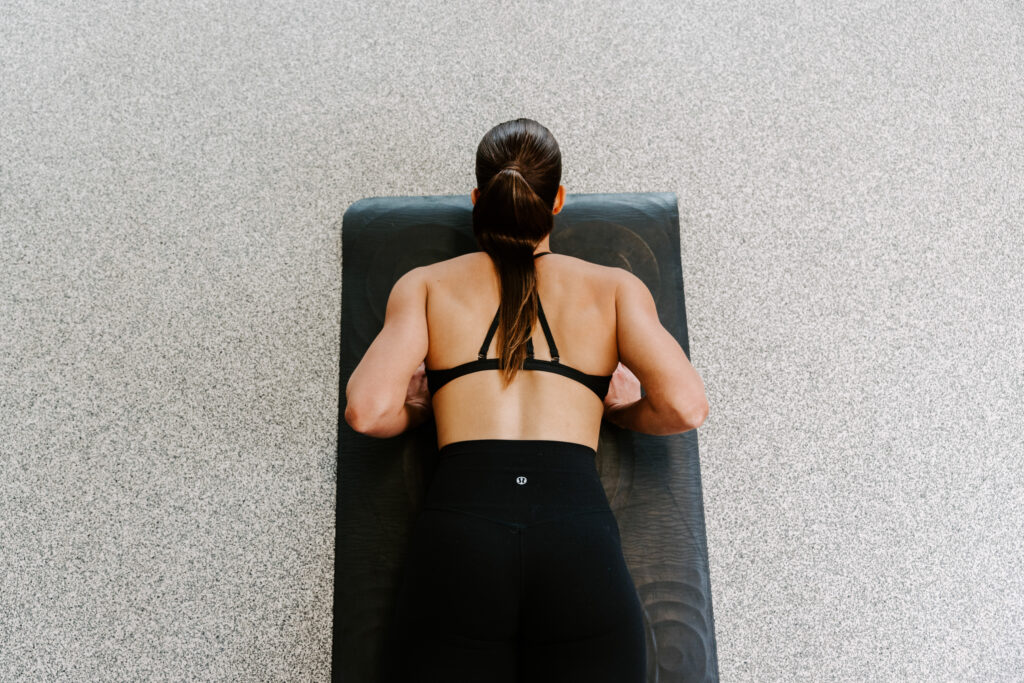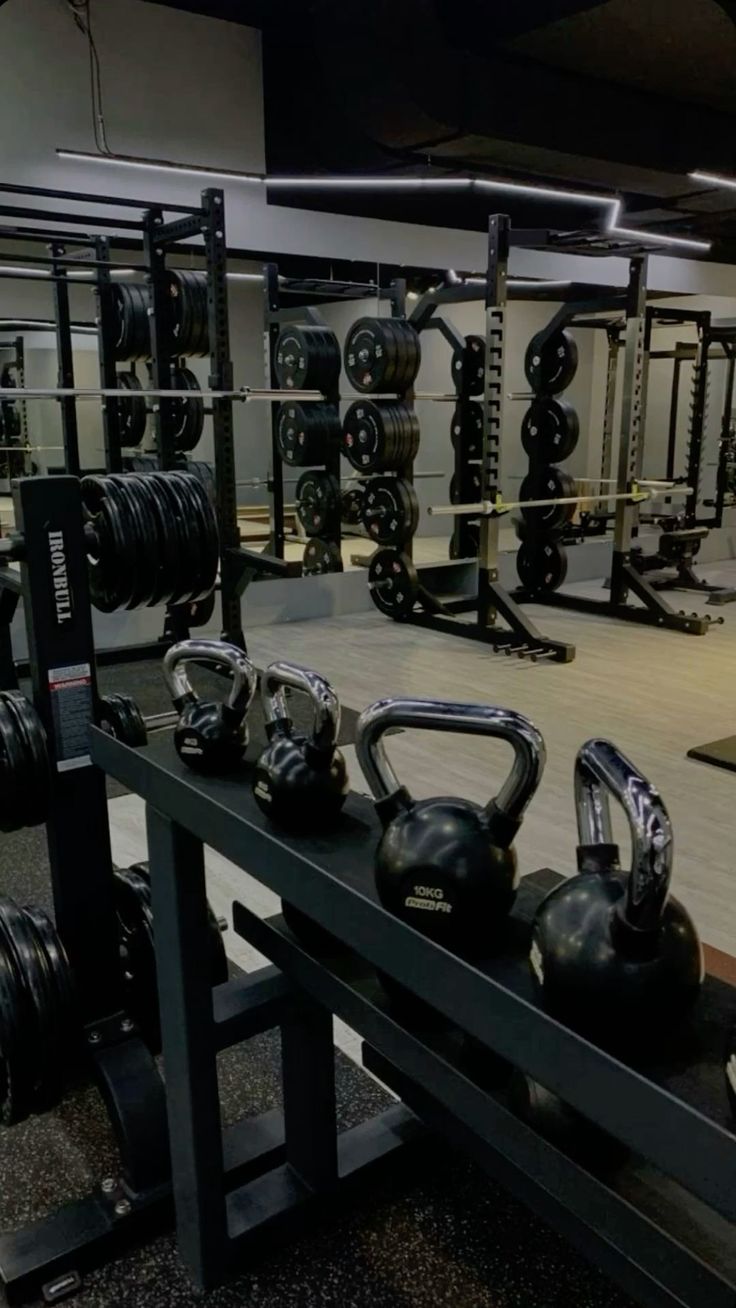Polycystic Ovary Syndrome (PCOS) can be frustrating, confusing, and exhausting to manage—especially with so much conflicting advice out there. But one thing we know for sure? Regular movement helps. And not just any kind of movement—resistance training (aka lifting weights) has some pretty powerful benefits for people with PCOS.
If you’ve been told that cardio is the only way to manage your symptoms, it’s time to rethink that. Lifting weights isn’t just about getting stronger (although that’s a great bonus). It can play a major role in improving many of the hormonal and metabolic symptoms that come with PCOS.
Let’s break down why.
1. It can help with insulin resistance
Insulin resistance is super common in PCOS and plays a big role in many of the symptoms—like irregular cycles, high androgen levels, and weight gain. Lifting weights helps your muscles use glucose more effectively, which improves your body’s sensitivity to insulin.
The best part? These benefits can happen even if you don’t lose weight.¹
2. It improves body composition (not just the number on the scale)
A lot of people with PCOS find it hard to lose fat and maintain muscle. Resistance training helps with both. It helps reduce fat mass and build lean muscle—which supports your metabolism, helps regulate blood sugar, and can make your body feel like a better place to live in.²
3. It may support more regular cycles and ovulation
While more research is still emerging in this area, we do know that movement—especially when combined with eating enough and managing stress—can help restore more regular periods. Strength training helps lower insulin and potentially androgens, both of which play a role in irregular cycles.³
4. It may reduce high androgen levels
Lifting weights has also been linked to lower testosterone levels in people with PCOS. And that can help with symptoms like acne, unwanted hair growth, and hair thinning.⁴
5. It supports mental health
Let’s not forget how much PCOS can impact mood, self-esteem, and overall mental wellbeing. Lifting weights has been shown to reduce anxiety, improve mood, and boost confidence. Plus, there’s something really empowering about getting stronger and doing things you never thought you could.⁵

How to Get Started with Resistance Training (Even if You’re New)
If you’re new to strength training, the idea of lifting weights can feel intimidating—but it doesn’t have to be.
Here’s how to ease into it:
- Start small and simple
You don’t need to jump into a five-day program. Two to three days a week of full-body workouts is a great place to begin. - Focus on movement patterns
Begin with basic exercises like squats, lunges, push-ups, rows, and deadlifts (these can all be done with bodyweight or light resistance at first). These movements target major muscle groups and build a strong foundation. - Keep it short and doable
Even 30–40 minutes is enough when you’re starting out. It’s more about consistency than doing it perfectly. - Tune in to how you feel
PCOS symptoms can fluctuate, so be flexible. Some days you may feel ready to lift heavier, other days a gentle workout or rest might be better. That’s okay. - Get support if you can
Working with a coach—especially one who understands PCOS—can help you feel confident in your form, progress safely, and make sure your training matches your body’s needs.
Remember: resistance training doesn’t have to be intense or overwhelming to be effective. It’s about building strength over time—not overnight.
The bottom line?
If you have PCOS, resistance training can be a total game-changer. It supports your hormones, metabolism, mental health, and more—and it’s something you can build into your routine at any level.
Start where you are. Be consistent. And know that strength, inside and out, is something you’re absolutely allowed to pursue.
References
Harrison, C. L., Lombard, C. B., Moran, L. J., & Teede, H. J. (2011). Exercise therapy in polycystic ovary syndrome: A systematic review. Human Reproduction Update, 17(2), 171–183. https://doi.org/10.1093/humupd/dmq045
Hutchison, S. K., Teede, H. J., Rachon, D., & Nestler, J. E. (2011). Effect of exercise training on anthropometry and fitness in women with polycystic ovary syndrome: A randomized controlled trial. The Journal of Clinical Endocrinology & Metabolism, 96(1), E48–E56. https://doi.org/10.1210/jc.2010-1195
Thomson, R. L., Buckley, J. D., Noakes, M., Clifton, P. M., Norman, R. J., & Brinkworth, G. D. (2008). The effect of a hypocaloric diet with and without exercise training on body composition, cardiometabolic risk profile, and reproductive function in overweight and obese women with PCOS. The Journal of Clinical Endocrinology & Metabolism, 93(9), 3373–3380. https://doi.org/10.1210/jc.2008-0751
Sprung, V. S., Cuthbertson, D. J., Pugh, C. J., Aziz, N., Kemp, G. J., Daousi, C., … & Jones, H. (2013). Exercise training in polycystic ovary syndrome enhances insulin sensitivity and improves body composition. Clinical Endocrinology, 79(4), 595–601. https://doi.org/10.1111/cen.12180
Barry, J. A., Hardiman, P. J., & Saxby, B. K. (2011). Mental health in women with polycystic ovary syndrome: A systematic review and meta-analysis. Human Reproduction Update, 17(6), 638–651. https://doi.org/10.1093/humupd/dmr001

Comments +